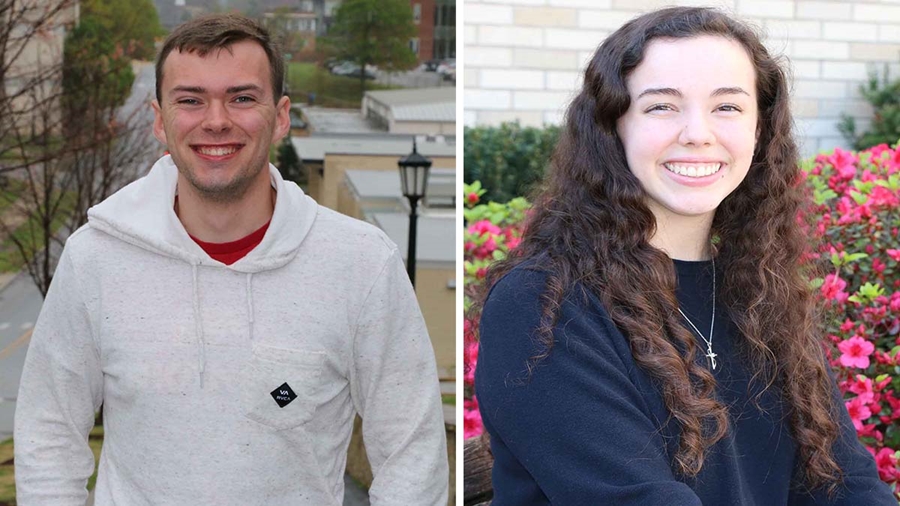Most college students plan to graduate and pursue lucrative careers, but do they ever think about the competition? In order to land that "dream job," applicants must have skills that set them above other candidates.
Japanese language learners David Black and Emily Matlock have increased their marketability by learning a second language and passing the Japanese Language Proficiency Test (JLPT). The exam, which measures the Japanese-language proficiency of non-native speakers, is used to advance education and find employment. It is also the only certification exam authorized by the Japanese government, and the University of Arkansas is one of only 15 JLPT test sites in the U.S.
The Japanese Program at the U of A considers the JLPT to be a very important instrumental goal for its students, as a JLPT certificate will give the students the most internationally recognized credential of their Japanese language proficiency. The program strives to certify its students' proficiency at a career-ready level (generally JLPT Level N3 or above) before graduation.
To prepare students for the JLPT, the Japanese Program includes JLPT Practice Exams in language courses at intermediate and higher levels.
Both Matlock and Black said the faculty of the Japanese Program helped ease their "test day jitters."
"The professors provided access to external resources that helped us prepare for the exam," said Matlock, Industrial Engineering major and Japanese minor. "The test was not hard at all; in fact, I am ready to take on level N3."
Black, International Business major and Japanese minor, was also very confident before taking the exam. His said his only concern was the listening section.
"Initially, I thought this portion of the test would be challenging, but my professors placed such strong emphasis on the listening section of the exam, it was not so bad," Black said.
Both students plan to use their background in Japanese to pursue future endeavors. Their JLPT attainment is among the finest examples for other students to follow.
Topics
Contacts
Tatsuya Fukushima, associate professor
World Languages, Literatures & Cultures
479-575-5535,
